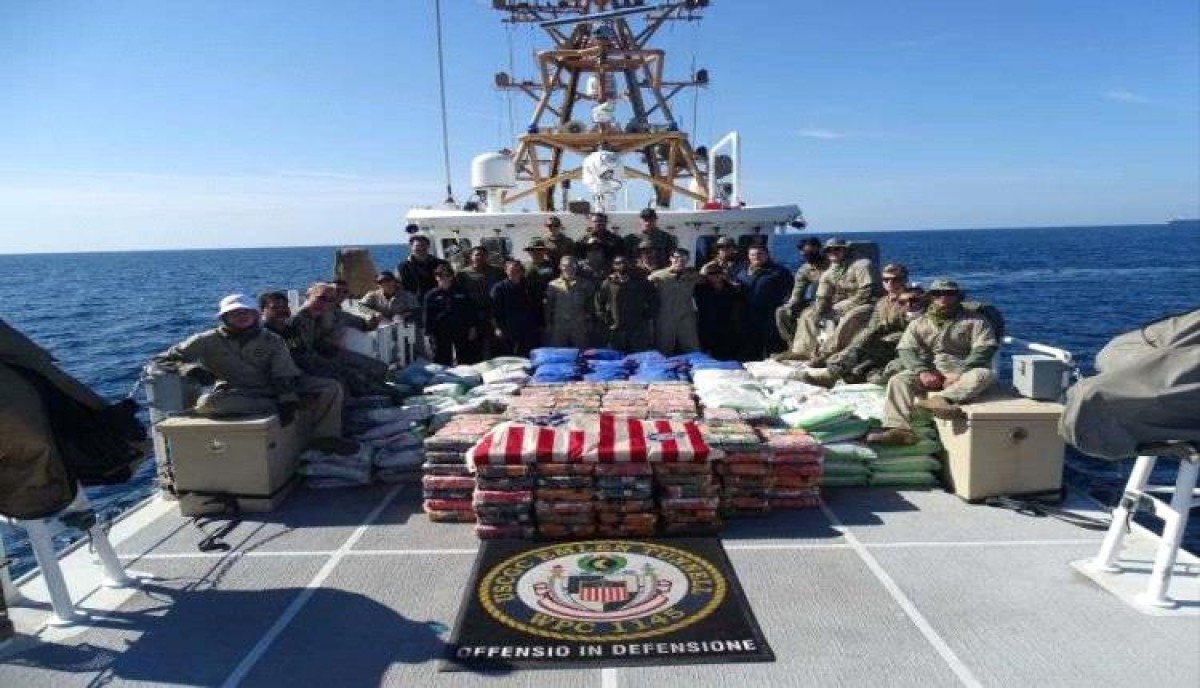Drugs worth $21 million were seized on a ship in the Gulf of Oman


The US Coast Guard announced the seizure of a drug shipment that was on board an unidentified ship as it passed through the Gulf of Oman.
The US Central Command, headquartered in the Bahraini capital, Manama, said in a press statement issued on Wednesday evening, that the US Coast Guard crew was able, on Tuesday, November 14, to seize illicit narcotic substances worth 21 million US dollars from a stateless ship in international waters in Gulf of Oman.
The statement added that the Coast Guard crew, working under the command of Joint Task Force 150, seized 2,000 kilograms of hashish and 384 kilograms of methamphetamine during an interception operation.
The US Navy often seizes Iranian boats carrying illegal narcotic substances in the Gulf of Oman.
Iran adopts the drug trade as one of the means of supporting its militias outside its borders, in addition to the policy of flooding communities with drugs, as it does in Yemen through its arm, the terrorist Houthi militia.
French Navy Colonel Yannick Bousso, current commander of Force 150, stressed that this operation “demonstrates once again the high effectiveness of the capabilities of the member states of the joint naval forces.”
He added that this demonstrates that the countries of the world are committed to regional maritime security in the Indian Ocean, along with their regional partners.
CJTF 150 is one of five task forces of the Combined Maritime Forces, the world's largest multinational maritime partnership consisting of 38 countries and headquartered in Bahrain.
The division focuses on maritime security operations in the Gulf of Oman, the Arabian Sea and the Indian Ocean.
Drug trade is a major resource for the Houthis
A specialized study in organized crime revealed that the drug trade was a major source of funding for the Houthi terrorist militia, even in the period before its control of the capital, Sanaa, despite the recovery of the drug market in the country since the Houthi coup.
The study of drug crimes and their connection to financial crimes confirmed that the war sparked by the terrorist Houthi militia in Yemen contributed significantly to the recovery of drug trade of various types, and this is linked to the financing of the militias as they generate large sums of money.
According to the study, the drug smuggling process into Yemen is largely conducted to introduce large quantities of narcotic substances, and its illicit financial flows contribute to crime, corruption, and distortion of the economy.
The study revealed that during the period 2015 - 2022, more than 351 tons of narcotic hashish were seized, in addition to 21 million narcotic pills, not to mention 159 kilograms of shabu and 808 grams of cocaine, which were on their way to the Houthis